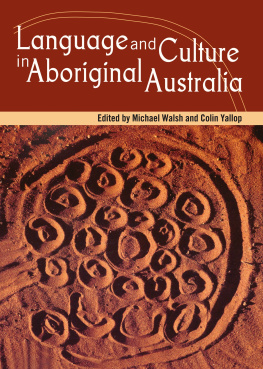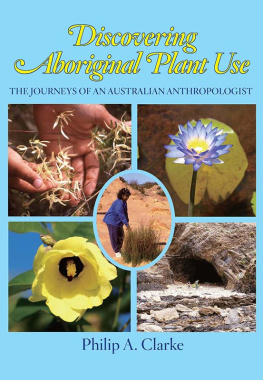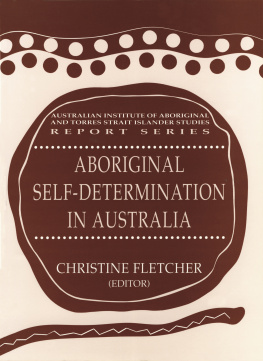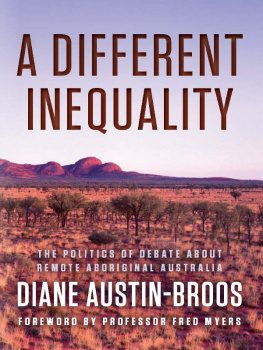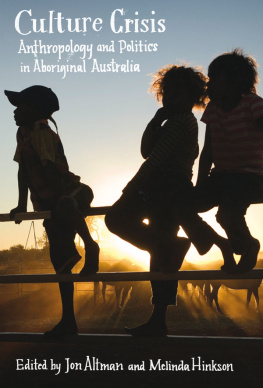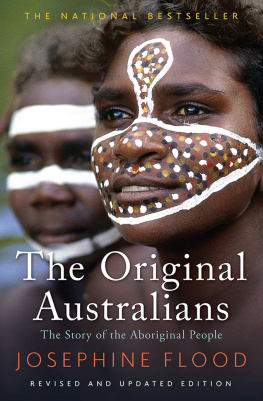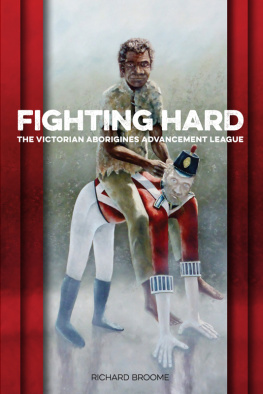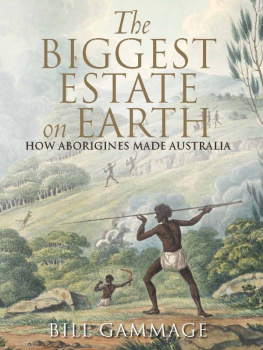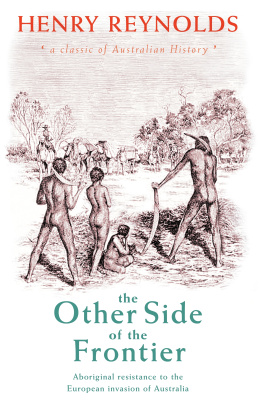First published in 2011
by Aboriginal Studies Press
Alan Pope 2011
All rights reserved. No part of this book may be reproduced or transmitted in any form or by any means, electronic or mechanical, including photocopying, recording or by any information storage and retrieval system, without prior permission in writing from the publisher. The Australian Copyright Act 1968 (the Act) allows a maximum of one chapter or 10 per cent of this book, whichever is the greater, to be photocopied by any educational institution for its education purposes provided that the educational institution (or body that administers it) has given a remuneration notice to Copyright Agency Limited (CAL) under the Act.
Aboriginal Studies Press
is the publishing arm of the
Australian Institute of Aboriginal
and Torres Strait Islander Studies.
GPO Box 553, Canberra, ACT 2601
Phone: (61 2) 6246 1183
Fax: (61 2) 6261 4288
Email:
Web: www.aiatsis.gov.au/asp/welcome.html
National Library of Australia
Cataloguing-In-Publication data:
Author: Pope, Alan (Alan Richard)
Title: One law for all? : Aboriginal people and criminal law in early South Australia / Alan Pope.
ISBN: 9780855757489 (pbk.)
ISBN: 9780855757816 (ebook PDF)
ISBN: 9780855757847 (ebook ePub)
Notes: Includes bibliographical references and index.
Subjects: Criminal law South Australia. Indigenous peoples South Australia. Equality before the law South Australia
Dewey Number: 345.942305
Printed in Australia by Opus Print Group
Map by Brenda Thornley
Cover: Wiltjas, 2010, 600x750mm, Acrylic on canvas,
Joyce Walkabout, Iwantja Arts & Crafts
PREFACE
This book has had a long and somewhat serendipitous gestation. My interest in contact history began when I was a teacher at Port Lincoln High School in the 1980s, teaching History to junior secondary classes which included some Indigenous students. I started researching local archives, and later the Mortlock Library, for information that could enliven and localise my Australian History lessons. Having studied only European and Asian History in an era when Australian History was seen as decidedly second class at Adelaide University, the richness and relevance of this local history was a new discovery to me. My students responded well to the local narratives, especially when linked to fun excursions to nearby sites such as Boston Island. However, it was not until a colleague organised a three-day excursion into central and eastern Eyre Peninsula that the reality of the frontier experience came home to me and to at least some of my students. We visited the ruins of isolated shepherds huts, scrambled over granite outcrops, walked along dry watercourses below farm dams and started to get a feel for the fundamental clash over the land and its resources that was inevitably involved in the settlement/invasion of this countryside in the mid nineteenth century.
One experience from that excursion was particularly poignant and prompted me to learn more about the frontier contact experience. It was on a farm near Cleve, where a fifth-generation farmer had agreed to talk to our students about his familys early experiences. He was well educated and had clearly thought about how his inheritance and lifestyle was built at least partly on the dispossession, or worse, of the local Pangkala people. Standing by a small spring-fed waterhole, he attempted to explain the situation and choices that had faced both his ancestor and the Aboriginal people living on this land when all other water sources dried up. This was competition for scarce resources at its most basic should the waterhole be fenced off and the Aboriginal people driven away so that stock could be watered through the long dry, or did humanity prevail and stock perish as more Aboriginal people came to get water from the diminishing source? Or worse, when Pangkala men started to steal his sheep to provide food for their families would the settler succumb to a more brutal survival instinct and take even more extreme measures against the Aboriginal population in order to avoid bankruptcy? West Coast farmers do not cry but this ones voice wavered with emotion (and the students became quiet) as he explained his ancestors dilemma. He liked to think that his forebear had not shot or poisoned Aboriginal people, but his family history did record a drought year in which some hard decisions must have been taken to save the farm.
Years later, after I had written Resistance and Retaliation, another chance encounter focussed my interest further. I met Rob Foster from Adelaide University and when I said I was interested in looking more closely at the cases where Aboriginal people were brought before the courts, he told me of the existence of the early Supreme Courts records. This rich historical lode was buried in the basement of a city building, with access only available with the permission of the Sheriff of the Supreme Court. Naively, I approached this court official seeking access, beginning a long and unsuccessful correspondence. No doubt fully occupied with his extensive duties, the Sheriff of the day always fobbed me off with some reason why I could not be granted access to the stored records, and every time I suggested how the problem (e.g. inadequate lighting, no desk, Occupational Health and Safety concerns) could be overcome, he would come up with another. To cut a long story short, it was four years before I got access and that was only because, coincidentally, the Supreme Court Library decided to house all of the historical records within its main collection. I was then able to readily gain access to the Criminal Records and the early Judges Notebooks, simply by explaining my purpose to the Librarian.
I was a part-time researcher and for years I spent my Saturdays in the wonderful old world of the Mortlock Library (this was before some bright bureaucrat thought of raising revenue by stripping it of books and hiring it out for functions). Mortlock staff members were always helpful, knowledgeable and supportive I thank them all. Some indexing of relevant sources had been done but often it was just a matter of reading every newspaper edition. My problem was not the tedium but the endless distractions and digressions into irrelevant but interesting stories. Thursday evenings were spent in the State Records Netley Reading Room, where the archivists were also exceptionally helpful, not to mention patient.


